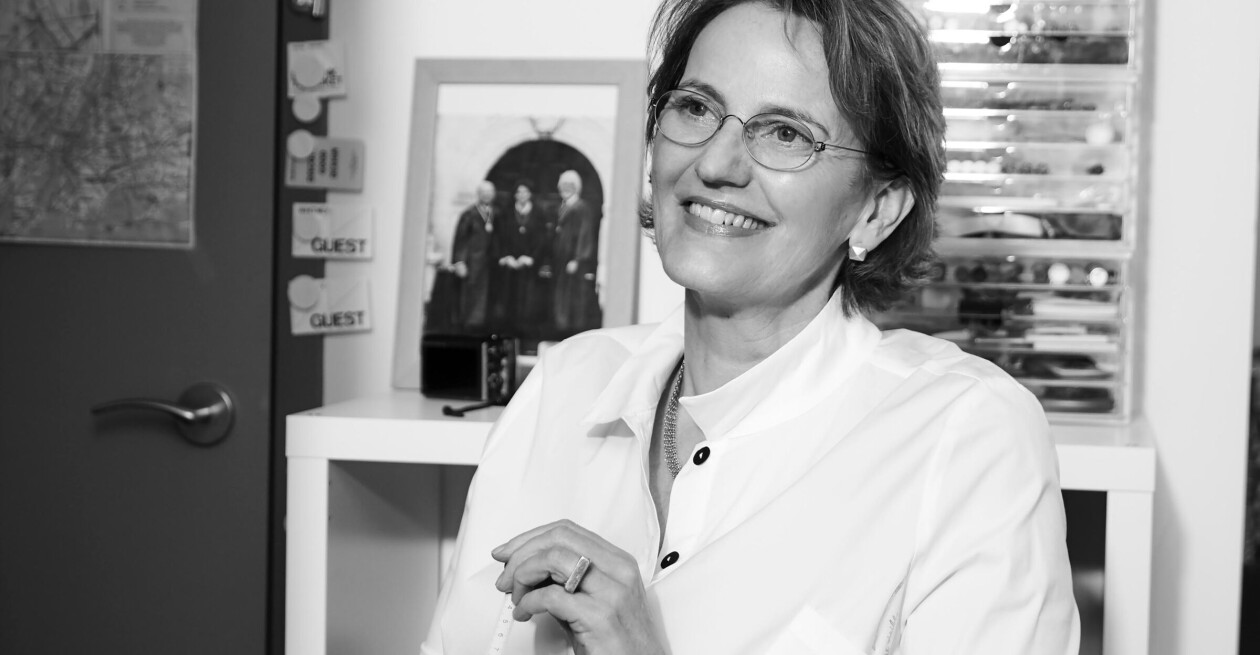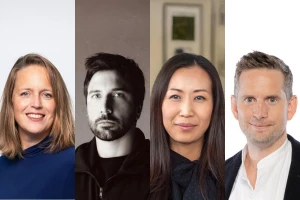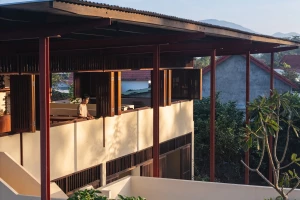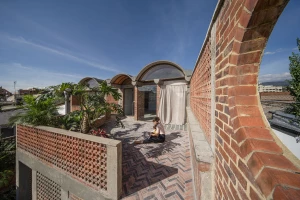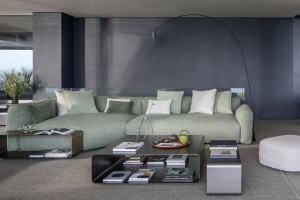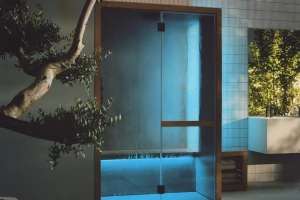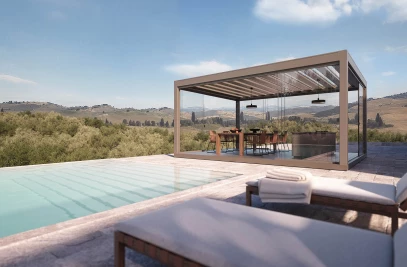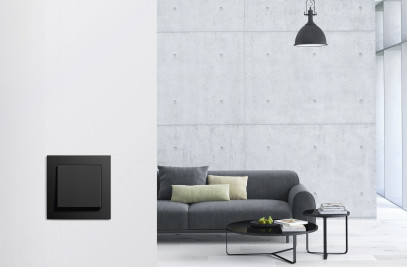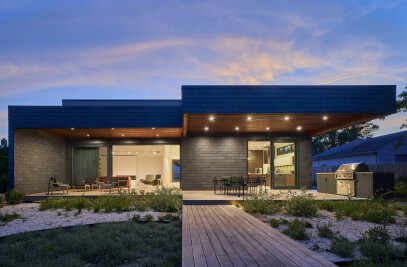At the outbreak of the corona pandemic, architect Francine Houben was able to travel back to the Netherlands from New York just in time. From her rural Dutch farm we talk to her via Skype about how things are going during the coronavirus pandemic with Mecanoo and the Mecanoos, as she affectionately calls her employees.
After the library in Birmingham, Mecanoo is fast becoming the purveyor of the world's most important libraries, with recently the library interior of the LocHal in Tilburg, and upcoming projects such as The New York Public Library, Martin Luther King Jr. Memorial Library, Mid-Manhattan Library and Tainan Public Library.
Mecanoo is clearly not only a specialist in libraries and works on a wide variety of projects around the world from their offices in Delft, New York and Kaohsiung. Francine Houben is proud of her expertise in one of the most important public buildings, but also likes to work on typologies she has not worked on before.
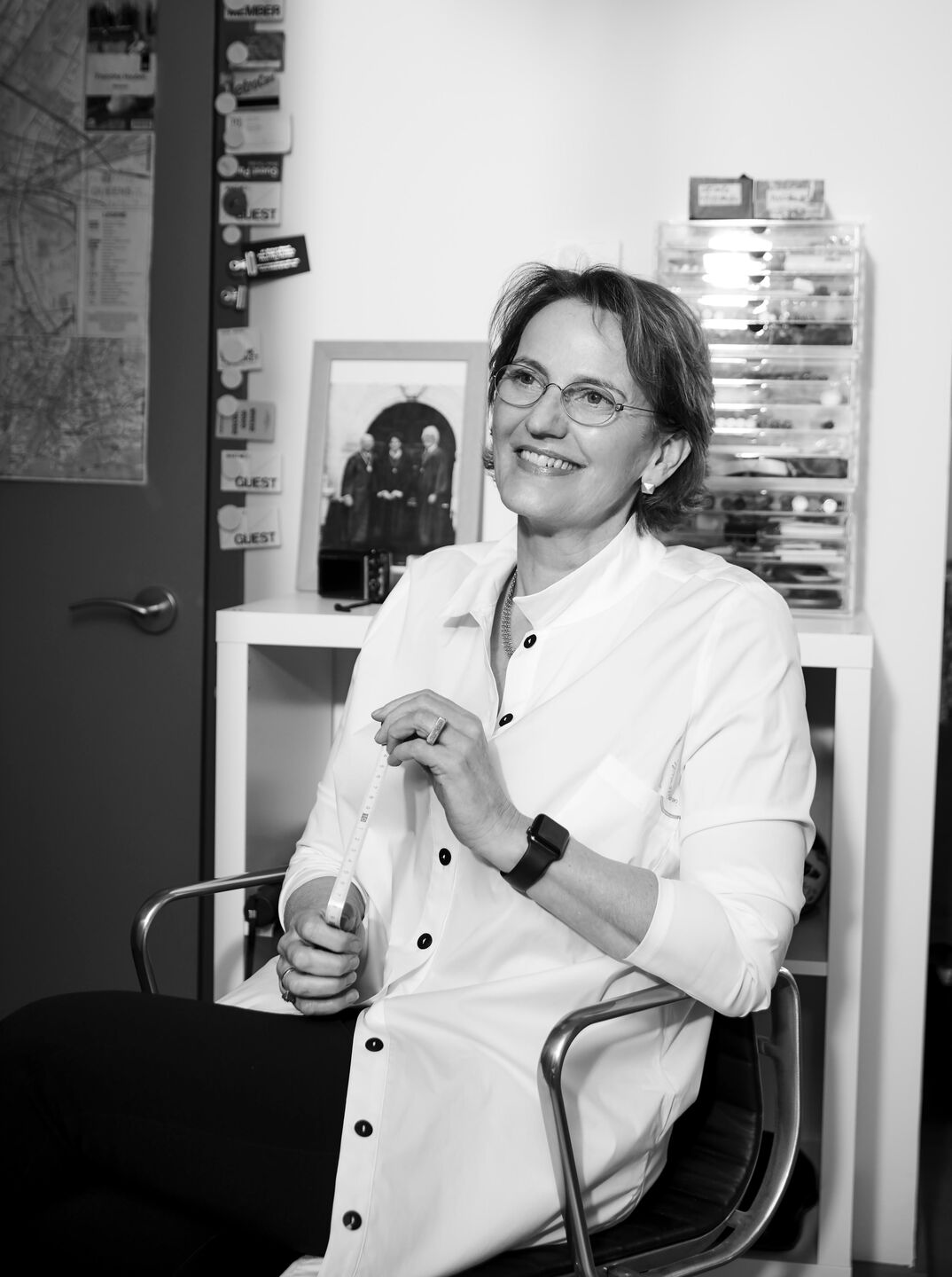
How is it going at Mecanoo?
"Actually, it is going amazingly well. Whether I'm calling from home or from New York, it doesn't matter to me. A few months ago I was still in New York and left right at the turning point. I do find it fascinating that over there they really didn't know what was heading for them. And I'm not talking about small institutes like Yale, where I teach, and the New York Public Library.
When I returned to the Dutch rollercoaster of the corona, our company had to adapt quickly. At the same time, we were already well prepared. With our servers and Microsoft Teams in place, we are used to collaborating online. It is nice to see that we were even able to advise clients and municipalities on how to do this.
I am incredibly grateful for the enormous loyalty and solidarity of all Mecanoos. I did not close the office. Employees are free to choose whether they work from home or at the office. Some have gone to their holiday home or to their parents. I gave them the freedom to do so. I can't decide for anyone personally what is the safest situation for them.
It is nice that we have a spacious office with a fantastic garden and luckily no elevator. Our satellite office in New York is on the 21st floor and had to close immediately because the owner closed the whole building, due to the elevator. I find it interesting that on the one hand you don't have personal contact and on the other hand you have much more personal contact with a lot more people. So I'm not so negative about the situation.
The Dutch prime minister Rutte has asked organizations to come up with a plan for when they reopen. That's what we're working on. For our spacious office, with two entrances and easy access by bike, that's quite feasible. Although some things have to change. We used to cook together. We are not going to do that anymore. I do have some very nice red Canadian chairs, like the ones used in the Governors Island of West 8. We're going to put them in the grass at a distance from each other, so that everyone can sit there with their own lunch. We are going to make it a bit of fun."
Times of crisis are often times of contemplation. Mecanoo was also founded during the crisis in the 80s. Does this crisis bring you other insights?
"I have a philosophy that I am writing a book about. ‘Forward to basics.’ I believe that in the future we will not go 'back to basics', but 'forward to basics.’ Very basic matters will become important. The topics I encounter during this crisis fit exactly with that direction. Walkable buildings, walkable cities, bikeable cities, bringing food closer to people, hygiene in public buildings. These are all themes that I have been working on for a long time. 'Forward to basics' is and remains, even with what is happening now, my adagio. Strengthening human values with the use of technology.
We are working on a design for Trinity College in Toronto where we want to realize the most sustainable university in Canada. We want those students to become ambassadors for sustainability. We want to bring the 800 students, who eat and sleep on campus, closer to the food they eat. We are planning to grow that food on the roof. It is super interesting what is going on with food right now. I think it's a fantastic time.
We can also be very happy that we live in the Netherlands. In America the crisis again makes apparent the divide between rich and poor. Those who don't have health insurance are hit the hardest. Not to mention what is about to happen in Africa. We also work in Taiwan and it's remarkable how they managed to get it under control. I think they have only had seven deaths. We work both in South Korea and Taiwan, and I think there I learned how to deal with hygiene differently. Not that it needs to be like being in a hospital everywhere, but that it is an important topic. They have been aware and act accordingly for years.
I wonder who's going to find out how this could have happened to the world. That fact that no one was able to stop it in time. Big mistakes have been made somewhere. Still my biggest surprise is that they just didn't see it coming in America. They didn’t expect it at all. That is going to have consequences."
What about ongoing projects? Are they continuing? How do you see it in the near future, do you need to make adjustments in working hours?
"So far everything just continues. We don't have to worry about the short term and have a buffer. I find it shocking that some companies are already on the brink of collapse after only a month with no turnover. I was brought up to save for a rainy day. We don't think we should ask for handouts. Of course, just like everyone else, I don't know what it's going to look like in six months. We want to take our responsibility and carry on, so that the economy keeps running.
There is an enormous spirit in the Netherlands at the moment of inventiveness, loyalty and solidarity. For example, we are working on the Boijmans museum in Rotterdam. As soon as it is possible we want to present our design in a fun way to the people of Rotterdam. I have already made a presentation for the mayor and aldermen. In a large space where everyone was far enough apart. Important meetings I still prefer to do in person. And a location visit, like tomorrow in the South of the Netherlands, I really want to see for myself.
The team is doing very well. What you do notice is that the very youngest, the juniors and interns, need more guidance. That is difficult from a distance. We are going to make sure that if not everyone can fit in the office under the new conditions, at least they can have a place to receive coaching. We also have a large model workshop. They just continued. Those guys have plenty of room. If they need it to get to the office, they can make use of the company cars. That's how we improvise.
At the same time we are cleaning up the whole building. We still have a contract with the cleaners, so we created work for them to do. We are also running through our entire photo archive. So far it has not been too bad for us. Of course it is terrible what has been going on, it seems like we are in some sort of movie, but it also has its silver linings.”
You work on many public buildings, such as the Tainan library, Martin Luther King Jr. Memorial library, Stephen A. Schwarzman library and Kaohsiung station. Do you notice in conversations with clients that the pandemic already plays a role in the design?
"I was recently a guest in Dutch talk show M. There they showed a clip from a documentary made in 2018, in which I talk about how hygiene in public buildings is an important topic. When I look at the designs for the New York Public Library and Martin Luther King Jr. Memorial Library, we have already designed them with hygiene in mind. Spacious tables where you can keep your distance. Walkable buildings. That's what we fought for. With social staircases at least 1.60 wide. To make sure two can go up and one can go down.
I have the idea of designing a little box for wipes, which people can use to clean their own seat. Because make no mistake, especially in libraries, there are about six different people sitting on the same chair every day.
In a city like New York you have people from so many different cultural backgrounds. When I work in Asia, for example, you don't even shake hands with people. That's where you keep a lot more distance. While in Spain and Italy, you already give the taxi driver a kiss, so to speak. Those cultural differences with regard to social distancing are very different all over the world. When I make a public building, I want to take all these different cultures into account. In that sense, the designs are already quite corona-proof."
